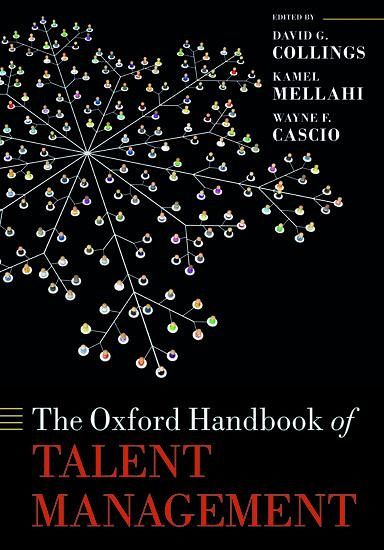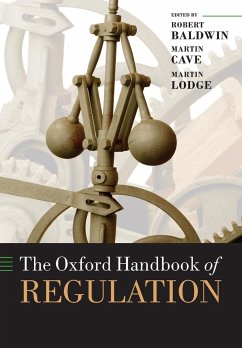
Broschiertes Buch
The Oxford Handbook of Talent Management
Versandkostenfrei!
Versandfertig in 1-2 Wochen

PAYBACK Punkte
28 °P sammeln!




The Oxford Handbook of Talent Management draws upon perspectives from human resource management, psychology, and strategy to chart the topography of the area of talent management and to establish the base of knowledge in the field.
David Collings is Professor of Human Resource Management (HRM) at Dublin City University Business School where he leads the HR Directors' Roundtable and is Joint Director of the Leadership and Talent Institute. He previously held academic appointments at the University of Sheffield and National University of Ireland Galway and visiting appointments at King's College London and Strathclyde University. His research and consulting interests focus on talent management and global mobility. In 2014 and 2015 he was named as one of the most influential thinkers in the field of HR by HR Magazine. He has published numerous papers in leading international outlets and seven books. He sits on a number of editorial boards including British Journal of Management and Journal of Management Studies. He is Senior Editor at Journal of World Business and former Editor of Human Resource Management Journal and the Irish Journal of Management. Kamel Mellahi is a Professor of Strategic Management at Warwick Business School where he teaches and researches in the areas of international business and strategic management. He research interests straddle international strategies of emerging markets multinationals, nonmarket strategy, and global talent management. He has published eight books and over 80 scholarly articles in top tier journals such as Journal of International Business Studies, Journal of Management, Journal of Management Studies and Strategic Management Journal. He serves as a Senior Editor for the Journal of World Business and Consulting Editor for the British Journal of Management. He is a previous (co)-Editor-in Chief of the International Journal of Management Reviews. Wayne F. Cascio holds the Robert H. Reynolds Distinguished Chair in Global Leadership at the University of Colorado Denver. He has published 28 books, and more than 185 articles and book chapters. A former president of the Society for Industrial and Organizational Psychology, Chair of the Society for Human Resource Management Foundation, and member of the Academy of Management's Board of Governors, he is an elected fellow of the National Academy of Human Resources, the Academy of Management, the Society for Industrial and Organizational Psychology, and the Australian HR Institute. He received SHRM's Losey Award for Human Resources Research in 2010, and SIOP's Distinguished Scientific Contributions award in 2013.
Produktdetails
- Oxford Handbooks
- Verlag: Oxford University Press
- Seitenzahl: 604
- Erscheinungstermin: 31. Oktober 2019
- Englisch
- Abmessung: 244mm x 170mm x 32mm
- Gewicht: 1054g
- ISBN-13: 9780198850359
- ISBN-10: 0198850352
- Artikelnr.: 58297012
Herstellerkennzeichnung
Libri GmbH
Europaallee 1
36244 Bad Hersfeld
gpsr@libri.de
Für dieses Produkt wurde noch keine Bewertung abgegeben. Wir würden uns sehr freuen, wenn du die erste Bewertung schreibst!
Eine Bewertung schreiben
Eine Bewertung schreiben
Andere Kunden interessierten sich für











